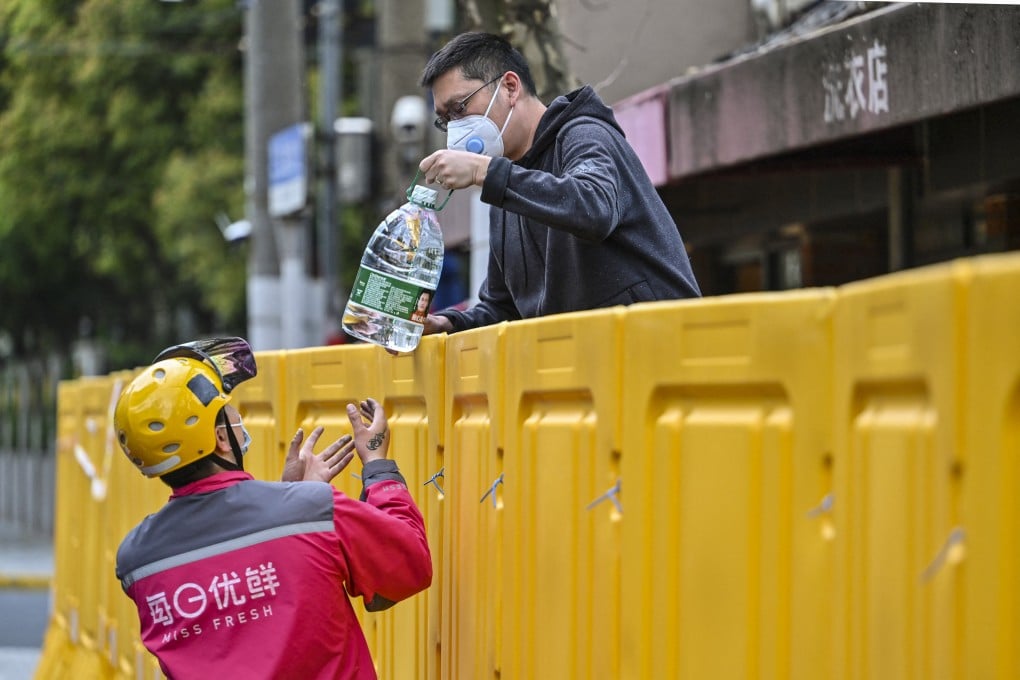Panic-stricken Shanghai residents race to buy bottled water as taps run dry in 10 areas, after lockdown leaves psychological scar
- Alarmed shoppers stripped shelves bare of water in shops across the city after authorities warned pipe cleaning would disrupt supply on Wednesday
- Public anxiety and a widespread loss of trust in the authorities after lockdown seems to have left a psychological scar on residents

Alarmed shoppers – particularly the elderly – stripped shelves bare of water in supermarkets and grocery stores across the city on Tuesday night and Wednesday morning, eagerly stocking up in case of a crisis.
“Bottled water became the bestselling items [at our outlet], and our stock of bottled water has been cleared in less than 24 hours,” Zeng Yanwen, a shop assistant at a Lianhua supermarket in Pudong, said on Wednesday. “It was obviously an irrational buying euphoria because many people were not even aware of why others were buying it. They just followed others to buy some water too.”
The current frenzy follows an announcement that tap water in 10 residential areas would be temporarily cut on October 12 while some of the pipes connecting the tap water stations are cleaned up. Speculation about a water supply crisis in the city of 25 million people spiked immediately after the Shanghai Water Authority’s statement was published.
“The Covid-19 lockdown sparked surging suspicion about the local government’s credibility and integrity,” said Bao Lihua, a retired worker in Shanghai, as she loaded a small shopping trolley with bottled water at a shop in Xuhui district. “It is not wrong to stock up with some water just in case a crisis becomes a reality.”
